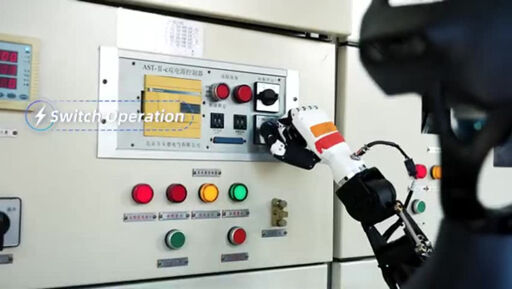Surely it’d be cheaper to just replace the control interface with a computerized one than to install a robot to push the buttons.
I imagine the goal here was to find a simple tasks to test how well the robots can handle it.
Is it important for humanoid robots to be able to push buttons? That seems like a redundant task imo
I’d argue that it’s important for humanoid robots to interact with environments designed for humans. That’s really the only place you need them after all. Pressing buttons and taking measurements might not be exciting, but if it is a job that a human did before then it’s saving somebody from doing something really boring that’s still necessary.
I think the idea of using robots as a drop in replacement for human workers is pretty sensible in general. Last I looked, Unitree was already making them for only $16k a pop, this makes it very cheap to automate a lot of manual labor. Another nice aspect of such robots is that they’re versatile, so you can have them do many different jobs as the need arises.
redundant
redundant AND prone to failure! What if the robot slip? What if it’s out of battery. Totally non sensical!
I know it’s impressive and all but I still get the heebee jeebees from a humanoid robot.
I want the robot uprising to look like HAL, not Terminator.
We’re getting all the sci-fi futures at once it turns out. :)
Remote hands
looks like it’s autonomous according to this article https://english.news.cn/20241230/baf0adafa56949fd9ab15c57f57a2694/c.html
Is it an official Chinese policy to pursue automation as a means of dealing with population decline or is it just the obvious solution?
the former
That’s a part of it, but generally increasing automation and productivity through advanced industrialization is China’s strategy for the long term. The more they can get out of each hour of human labor, the better a position China will be in to direct that productivity into solving social issues. This is the “correct” choice, but isn’t always the most profitable, so many Capitalist countries are lagging behind on that front.
Well in capitalist countries there’s also the problem of distribution of the value created by automation that displaces workers. So workers have the incentive to not automate since they’re often left out of the value the automation produces.
Sort of. Automation temporarily eliminates jobs, but just like steam engines and other tools employed by workers, only transfer value, they don’t create new value outright. For the purposes of profits, automation merely offers a temporary upper hand until the market equalizes, unless a point of absolute monopoly has been reached, at which point it is unquestionably more in the favor of workers to rebel.
Workers will resist machinery taking their jobs regardless, as it is a threat, but this process is inevitable and must be fought the same way it always has, by organizing so it can be made to benefit all.
I used to believe that it merely moves jobs, but recently started having doubts. Given the increase in productivity in the past 50 years and the stagnating wages, it’s hard to still believe. I mean, sure people will get new jobs, but I doubt it’s with similar wages and benefits.
which is pretty self defeating as there will be no one left to buy the goods produced.

You are correct, but this isn’t just about automation, it also extends to improvements in manufacturing technique and other forms of improving productivity per worker. Wages are stagnating because they are largely pressured towards a floor of “subsistence plus replacement,” and generally trend below that until crisis and correction.
The solution is, of course, Socialism. Marx makes very compelling arguments that regularly prove more and more useful with respect to his predictions for the course Capitalism would take, and Marxist economists like Lenin and Hudson continue to analyze Capitalism’s monopoly phase and deterioration. The crumbling of the US Empire we are currently seeing is something that has long been predicted.
I would be glad if every country could pursue automation on pretty much one of the most dangerous jobs to date.
A mistake or accident while working in electricity means there a noticeable chance of a wild arc appearing right in front ready to obliterate you (or at least cook you). I’m fine with a robot taking those risks.
But yeah, let’s just assume right away this is because China hates its people, so let’s replace everyone with expensive robots. /s
I didn’t assume that. While that’s one interpretation of my comment, there are others.
This is a pretty convoluted way to achieve automation in a substation panel …







